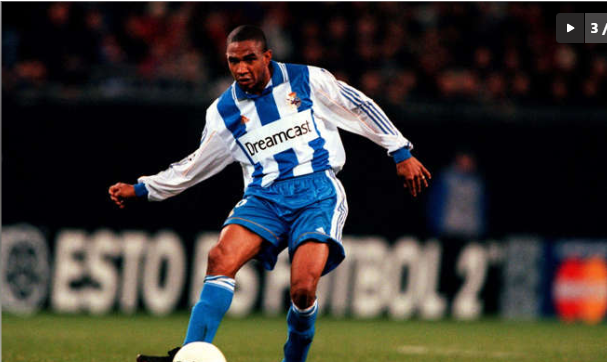When we think of legendary footballers, we often imagine players with incredible goal-scoring records—those who made a habit of finding the back of the net week in and week out. But for some, their greatness wasn’t defined by how many goals they scored. In fact, a few iconic players only managed to score one career goal, yet they still left an indelible mark on the game.

These footballers had impressive careers, even though their tally in front of goal may not reflect their contributions. Let’s take a look at some of the most celebrated players who, despite only netting once, became legends of the sport.
1. Gary Neville
Gary Neville is widely regarded as one of the best right-backs in Premier League history, spending his entire professional career at Manchester United. While Neville was known for his defensive prowess, leadership, and consistent performances, goal-scoring was never his forte.
In a career spanning over 600 appearances for club and country, Neville only scored once in the Premier League. His sole goal came against Leicester City in 1997—a headed effort that took many by surprise. Despite this, his legacy as a footballer is built not on goals, but on his ability to organize the defense and his deep connection with the Red Devils.
2. Claude Makélélé
Claude Makélélé is a name that will forever be associated with the art of defensive midfield play. He was so influential that the position was redefined and often referred to as the “Makélélé role.” A master of positioning and ball-winning, Makélélé wasn’t tasked with scoring goals. His job was to break up play and protect the backline.
Across his illustrious career with clubs like Real Madrid, Chelsea, and Paris Saint-Germain, Makélélé scored just one goal in the Premier League, during his time at Chelsea. It came from the penalty spot in 2006, a rare sight for fans who were used to seeing him deep in the midfield, not in front of goal. Nevertheless, Makélélé’s contributions to football far outweigh his lack of goals.
3. Des Walker
Des Walker was one of England’s most reliable defenders during the late 1980s and early 1990s. Known for his speed, anticipation, and no-nonsense defending, Walker played for clubs like Nottingham Forest and Sheffield Wednesday, as well as the English national team.
Walker’s career was defined by his ability to shut down attackers, not score goals. In fact, Walker only scored once in over 700 professional appearances. That goal came during his second stint at Nottingham Forest in 1992. Even without an impressive goal tally, Walker’s defensive acumen earned him a place among the game’s best.
4. Fabio Cannavaro
Fabio Cannavaro is best known for captaining Italy to World Cup glory in 2006 and for becoming one of the few defenders to win the Ballon d’Or. While Cannavaro was a force to be reckoned with at the back, scoring goals was never part of his skill set.
Despite playing over 500 matches for clubs like Napoli, Parma, Juventus, and Real Madrid, Cannavaro only found the net once in his entire club career, and it was during his time at Parma. Yet, his incredible reading of the game and his leadership on the field made him one of the greatest defenders of all time.
5. Lee Dixon
Another great right-back who found goal-scoring elusive was Arsenal legend Lee Dixon. Spending over a decade with the Gunners, Dixon became known for his consistency, solid defending, and commitment to the team’s success.
In over 450 appearances for Arsenal, Dixon scored just one goal in the Premier League. His only goal came against Charlton Athletic in 1994, a low strike that crept into the net. Like others on this list, Dixon’s legacy lies in his reliability and defensive ability, not his goal-scoring record.
Conclusion
These players prove that you don’t need to be a prolific goal scorer to be a footballing legend. Whether through impeccable defending, controlling the midfield, or leading their teams to glory, each of these players left a lasting impact on the beautiful game with just one goal to their name. Their careers serve as a reminder that football is about much more than scoring—it’s about teamwork, discipline, and mastering your role on the pitch.











